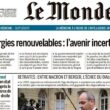Meredith Corp, which became America’s largest magazine publisher with its $3.2bn acquisition of the legendary Time Inc in 2018, took a pounding last week as CEO Tom Harty acknowledged that it is taking longer than expected to turn round the “new” magazines. Advertising and subscription yields had both been much worse than expected. Its share price tumbled more than 20% and the resulting market cap of under $2bn tells the story of worried investors and a management team that is under pressure.
Its EBITDA in 2019-20 may now be $675m, almost $120m less than analyst expectations. Bloomberg quoted one as saying that Meredith “didn’t know what they were buying with Time Inc,” Most of the $400m in earnings that the company was expecting “just…poof! disappeared.” Ouch.
Beyond some soggy trading, the $2.2bn-revenue Meredith has been rocked by what observers consider was a predictable post-acquisition clash of magazine culture and costs: New York meets Des Moines. With much of the former Time Inc business still being managed by its New York executives, real change was always going to take time.
Meredith has kept People – the most profitable magazine in the US – and also Real Simple and InStyle. It had earlier acquired Time Inc’s Southern Living. But the $435m recouped by the sale of Time, Fortune and Sports Illustrated had been at least 25% less than was expected and they couldn’t even get a worthwhile buyer for Money. Entertainment Weekly has… gone monthly.
But the strategy is clear enough. Meredith magazines, digital services and events now reach an audience of 175m American women including 80% of millennial women. Its star brand has long been the 95-year-old Better Homes & Gardens (BHG) which has sustained a 7m monthly circulation for more than 20 years. It has not only been Meredith’s largest magazine (before the acquisition of People) but also America’s most profitable monthly.
BHG has international editions in Australia, China, India, Russia, Italy, Ukraine and Turkey. The BHG New Cook Book (known as the “Red Plaid”), first published in 1930, is now in its 15th edition and has sold some 40m copies. BHG currently has 190 books and 75 bookazines. It has 12m monthly uniques on digital and mobile media, gets 100m uniques for its video channel which publishes 500 videos every month, and its blogger network attracts 25m visits. For eight years, the company produced a US television program Better, with a mix of content from Meredith magazines. The BHG magazine licensee in Australia still produces a top-rated Better Homes & Gardens TV programme.
For all its growth in digital, Meredith continues to find strong profitability and new growth in print. It has no fewer than nine monthly magazines averaging sales of more than 2m copies: Family Circle, People, Southern Living, Shape, Parents, Real Simple, Martha Stewart Living, Family Fun, and BHG.
In 2017, Meredith struck a partnership with the Magnolia home furnishing brand, to launch a quarterly magazine which became the company’s most successful launch with a profit in its first year. It’s now selling some 1.2m copies. Three years before, it had launched the 1.6m-circulation Allrecipes magazine to complement the digital service acquired from Reader’s Digest in 2012. Meredith has certainly had to pedal hard in order to achieve profit growth and revenue stability in a shrinking magazine market.
It is easy to consider that the relatively low-cost Meredith “beat” the gilded Time Inc (whose $4bn revenue 20 years ago was four times that of the Iowa-based company) because it had been much better at making digital profits. Its earnings held up while Time’s slid inexorably. Inevitably, Meredith’s lifestyle “service” journalism fared better than most areas of media content (especially news) and there has been a boom in food, fitness and home furnishing. And the company – until the Time Inc deal – stuck mainly to monthly subscription magazines, without exposure to the volatility of news-stand weeklies.
But, for magazine-media everywhere, the most interesting part of the story is brand licensing. At a time when magazines everywhere have been fighting hard to bolster revenues with ‘brand extensions’, Meredith has quietly become a world-beater. The company has reported that products licensed by its magazines last year had retail sales of $25bn. The lion’s share of these sales were accounted for by the 3,000 Better Homes & Gardens-branded houseware products in Walmart stores throughout the US.
It generates tens of millions of dollars of royalties (accounting for perhaps 15% of all revenues) through multiple long-term licensing agreements with retailers, manufacturers and service providers in the US and globally. It all began 25 years ago when the world’s largest retailer Walmart started to sell BHG-branded products in its home-ware and garden centres. Today, Walmart stocks no fewer than 3,000 of the products in more than 4,000 stores and online, in the US, Mexico and China. It is an amazing relationship.
Other licensing agreements include: a BHG real estate chain, branded floral arrangements, Shape active-wear and sunglasses, EatingWell frozen food dishes, Real Simple products at Bed Bath & Beyond and TJ Maxx, Food & Wine for HSN, InStyle hair salons at JC Penney stores, Southern Living plant collections, and 3,000 Southern Living fashion products at Dillard’s. And the list keeps growing.
Products are marketed across Meredith’s media platforms and are frequently sold alongside its magazines and books.
When the publisher bought Allrecipes, it launched branded cookware and a TV show. That acquisition was a real coup which doubled the company’s digital reach and established it as a world leader in digital food content. The finding that more than 50% of Allrecipes’ reader-users were ‘in store’ within 24 hours of being online has fuelled the company’s burgeoning e-commerce operations. In addition to being the largest food digital in the US, it is also a strong player in 17 international markets.
That $25bn of retail sales of Meredith-licensed products has more than doubled in the six years since it bought Allrecipes. That makes the company second only to Disney ($57bn) as a global licensor, as measured by LicenseGlobal magazine. Imagine that.
Meredith scrambles its reported earnings for brand licensing. But the “robust brand licensing activities” are now believed to generate almost $150m of profit – equivalent to more than 100% of the company’s magazine-linked operating profit in 2018. It’s a far cry from the $5m of annual royalties it first earned from Walmart in the 1990s and underlines the strength of BHG as a 96-year-old magazine which now earns the majority of its profit from merchandising.
Brand licensing by magazines still has a long way to grow across the world. But the product sales of Meredith’s rivals are far behind its own $25bn. Playboy is said to have $1.5bn, Hearst $500m and Condé Nast $150m. It gives Meredith three dependable profit streams:
- Print, digital and e-commerce
- Local broadcasting (17 TV stations)
- Product licensing
The company’s best-in-class success as a magazine publisher gave it the confidence to take the plunge. To acquire Time Inc, Meredith took on serious debt and borrowed $3.6bn from an assortment of lenders who were confident that the Iowa-based publisher which had upstaged its big city cousins could do it in New York. But it’s not yet turned out like that. The promised $565m of cost savings by 2021 (mostly from cutting 600 jobs) are a bit more than expected but that’s lost in the rounding.
What excites insiders, though, is the gossip that the 3.5m-circulation weekly People magazine is set to land some major licensing deals which will make light of the culture clash.
People, whose 3m subscribers (news-stand sales are 500k) pay an average of $90, could transform the whole prospects for Meredith with the kind of merchandising deals that have long buoyed BHG. It has already launched the TV show People Now Weekend and plans next to ramp up the magazine’s e-commerce.
The Meredith shareholders whose dealing rocked its share price last week were panicked by the Time Inc indigestion and by the stresses that seem to surface on a web site which, curiously, still includes Time magazine and Sports Illustrated. But not all shareholders are so worried. This week, CEO Tom Harty splashed out $420k of his own money on 12,000 more shares. I bet he’s banking on some juicy licensing deals and the conviction that his consistently under-estimated company will soon be riding high again. But it might still be a tough 12-18 months.




